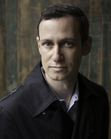Charlie Don't Surrender

Over the past day or so, I've once again been flooded with mail regarding my Alcoholics Anonymous opus from last July's Wired. The reason, of course, is Charlie Sheen's recent decision to come out hard against the organization, which he accuses of being (and I paraphrase) a fraudulent mind-control cult with an abysmal success rate. Skeptics have rejoiced over adding such a high-profile figure to their ranks, while 12-step devotees have bemoaned the damage that Sheen's rants might do to addicts who require help. Epistles from members of both cliques have shown up in my inbox recently—some to mock, others to plead for help.
I want to point out that I consider myself neither an AA supporter nor a critic; I'm merely a writer who was curious enough to dig through the organization's history and methods, in an effort to figure out why Bill Wilson's system has endured and grown for over 75 years. I learned enough in the course of my reporting to know that Sheen's attacks are wholly unoriginal, especially his insistence that AA's "success rate" is a mere five percent. (That oft-quoted stat is based on a misreading of a 20-year-old AA member survey.) Yet Sheen is, indeed, correct in asserting that there are many paths to sobriety, and that one needn't follow the 12 Steps in order to recover.
My main takeaway from Sheen's tirades is that AA is unique in its ability to inspire such passionate love and hate. Those who stay in the program credit the Steps with, quite literally, saving their lives; those who choose another path to sobriety claim it's a cult every bit as creepy as the People's Temple. I spent a long time wrestling with the reasons for this sharp schism, and I don't think I ever came up with a satisfactory answer. But there is a quote from an early draft of "Secret of AA" that was left on the cutting-room floor, and I think it goes part of the way toward explaining why AA is do divisive:
The rigidity of the program is what turns off most prospective members, especially those who chafe at any tinge of religion. "You have to be pretty strong," says Lee Ann Kaskutas, senior scientist at the Alcohol Research Group in Emeryville, Calif. "You have to say, 'Okay, I'm going to smile and not get upset and not get hurt when someone tells me to get on my knees and pray. I'm not going to argue.' Because you really can't argue with them about the philosophy. It's not up for debate."
For AA members, the sacred nature of the Steps is precisely what makes the program work. But AA haters, that inflexibility is an insult to their autonomy and intelligence. That's why Sheen spent part of his Today Show interview mocking the language in the Big Book; he simply can't bring himself to buy into aspects of the system that he finds distasteful, for the sake of working toward a greater goal.
Again, let me stress that I take no sides in the AA debate—it works beautifully for some, and it skeeves out others. But no matter how an alcoholic or addict works toward sobriety, there is one common thread that runs through every successful recovery story: a sincere knowledge that one's old course was leading nowhere good. Does Sheen possess that wisdom? For the sake of his five kids, I sure as heck hope so.




